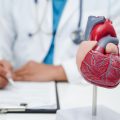
Understanding the Role of Cholesterol in Heart Health: Myths, Facts, and Management
Cholesterol often gets a bad reputation when it comes to heart health, but the truth is more nuanced. This essential lipid plays vital roles in the body, yet imbalances can contribute to cardiovascular disease. In this article, we’ll explore what cholesterol is, its different types, how it affects the heart, and effective strategies to manage cholesterol levels for a healthier cardiovascular system.
What Is Cholesterol?
Cholesterol is a waxy, fat-like substance found in every cell of the body. It is necessary for producing hormones, vitamin D, and substances that help digest foods. The body produces all the cholesterol it needs, but cholesterol also enters the bloodstream through certain foods.
Types of Cholesterol
Cholesterol travels through the bloodstream attached to proteins called lipoproteins. The two main types are:
- Low-Density Lipoprotein (LDL): Often referred to as “bad” cholesterol because high levels can lead to plaque buildup in arteries, increasing the risk of heart disease and stroke.
- High-Density Lipoprotein (HDL): Known as “good” cholesterol because it helps remove LDL cholesterol from the arteries, transporting it back to the liver for elimination.
Common Myths About Cholesterol
There are several misconceptions surrounding cholesterol that can cause confusion:
- Myth 1: All Cholesterol Is Bad. In reality, HDL cholesterol protects your heart, so not all cholesterol is harmful.
- Myth 2: Eating Cholesterol-Rich Foods Always Raises Blood Cholesterol. Dietary cholesterol affects individuals differently; saturated and trans fats have a bigger impact on blood cholesterol than dietary cholesterol itself.
- Myth 3: Only Older Adults Need to Worry About Cholesterol. Cholesterol issues can affect people of all ages, including children, especially with poor diet and sedentary lifestyles.
How High Cholesterol Affects the Heart
When LDL cholesterol levels are elevated, it can deposit on artery walls forming plaques. These plaques narrow the arteries (atherosclerosis), reducing blood flow and potentially leading to chest pain (angina), heart attacks, or strokes. Low HDL levels can reduce the body’s ability to clear excess cholesterol, further increasing risk.
Who Should Monitor Their Cholesterol?
Everyone should have their cholesterol checked regularly, especially individuals with risk factors such as:
- Family history of heart disease
- Obesity or overweight
- Diabetes
- Smoking habits
- High blood pressure
- Physical inactivity
How to Manage Cholesterol Levels
Managing cholesterol is a combination of lifestyle changes and, in some cases, medication. Key strategies include:
1. Adopt a Heart-Healthy Diet
- Choose foods low in saturated and trans fats, such as lean meats, fish, and plant-based oils.
- Increase intake of soluble fiber found in oats, fruits, vegetables, and legumes, which helps reduce LDL cholesterol.
- Include nuts, seeds, and fatty fish rich in omega-3 fatty acids.
- Limit intake of processed foods and sugary drinks.
2. Engage in Regular Physical Activity
Exercise can help raise HDL cholesterol and lower LDL cholesterol. Aim for at least 150 minutes of moderate-intensity aerobic exercise per week.
3. Maintain a Healthy Weight
Excess weight contributes to higher LDL and triglyceride levels and lower HDL levels.
4. Avoid Tobacco Smoke
Smoking lowers HDL cholesterol and damages blood vessels, increasing heart disease risk.
5. Medication When Necessary
For some, lifestyle changes alone may not be enough. Statins and other cholesterol-lowering medications can be prescribed by your doctor to manage high cholesterol effectively.
Regular Monitoring and Working with Your Healthcare Provider
Routine blood tests can monitor cholesterol levels and help assess cardiovascular risk. Collaborate with your healthcare provider to develop a personalized plan that fits your health needs and lifestyle.
Conclusion
Cholesterol plays a complex but crucial role in heart health. Understanding the difference between good and bad cholesterol, dispelling myths, and adopting healthy habits can significantly reduce your risk of heart disease. Regular check-ups, a balanced diet, physical activity, and, when needed, medications are key to keeping your cholesterol in check and your heart strong.
Disclaimer: This article is for informational purposes only and does not substitute professional medical advice. Always consult your healthcare provider for diagnosis and treatment tailored to your health condition.
Disclaimer: This article is for educational purposes only and does not constitute medical advice. Always consult a qualified healthcare professional.


